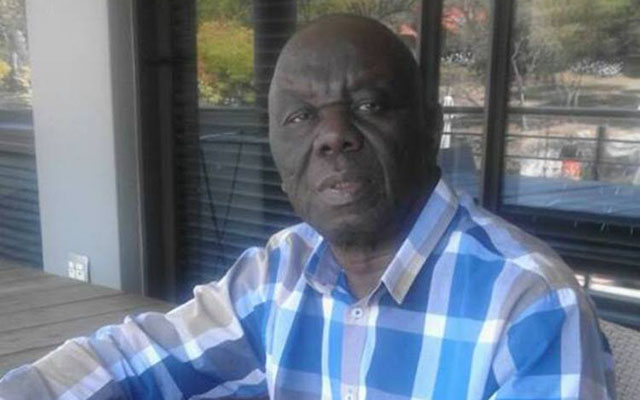Tackling TB through music, dance

Sharleen Mohammed
Despite his eloquent voice and exuberant theatrics on stage, deep down under, Progress Chipfumo is still smarting from survival scars, vestiges of an ailment onslaught and is now a man on a mission. The determined Afro pop musician, a survivor of the tuberculosis, which nearly put him off the musical scene rails nearly a decade ago is set to launch an ambitious plan whereby he will be spreading awareness of the disease through music. The lingering thoughts about 2008, the year when he was diagnosed with the disease are still fresh in his mind as if they happened yesterday.
Chipfumo recounts how he went through a rough epoch of stigma having lost a significant amount of weight, friends-an experience which inspired him to wage the fight against TB. Chipfumo said: “It is sad to note that society associates the TB disease with people in the lower economic strata, but the situation is everybody is potentially “vulnerable” to the disease.
He added, “It seems a little arrogant and immodest to say but what I really want to say is that if it can happen to celebrities, members of the parliament, it can also happen to anyone”. The former Hohodza Hot Band frontman then delve into the energy sapping and frustrating treatment process.
“When I was diagnosed with TB, I went through a very rigorous treatment for six months. I was diagnosed with extrapulmonary tuberculosis (many other organs and tissues in the body maybe affected). It was very uncomfortable such that I could not sleep or lie down,” he recalls.
Chipfumo added: “If TB is not detected in time, it can become grave. I had the medical help and guidance to get it detected and if I am sitting here as healthy, it was partly because we were able to detect the disease in time.” On a positive note, the determined Chipfumo plans to roll out a massive TB awareness campaign at his musical shows where he also intends to encourage TB patients to go for screening earlier while at the same time motivating patients already on treatment to desist from defaulting on their medication. The crooner believes one of the major reasons for the spread of TB is the reluctance particularly in men to get diagnosed early resulting in being misdiagnosed and by the time they get to know the real problem, the disease will be at an advanced level.
“It is now my new focus to find missing TB cases. This is a plan I have towards reaching out to those affected by TB as their voices can help reduce stigma, accelerate investment in TB, advocate for a transition to patient-friendly approach and raise the profile of TB,” he said.
He added: “As a man who suffered TB, I clearly understand that men do not often visit health facilities whenever they have a health problem and rather visit the pharmacy for over the counter medication.”
Country Director for the International Union Against Tuberculosis and Lung Diseases (The Union) Dr Christopher Zishiri said his organisation with support from Challenge TB, a USAID flagship, would continue to compliment government effort in mitigating the burden against all forms of TB. He added that Challenge TB appreciates and realises the role celebrities play in pushing the health agenda thus engaging them would be ideal.
“We have plans to increase the celebrity base and musicians will be a good group to consider as they command a huge following and they can drive TB messages through music and dance,” explained Zishiri. Deputy Director, TB unit in the Ministry of Health and Child Care Dr Charles Sandy concurred that TB was a public health threat in the county hence the need to find all missing cases. Sandy added that continuous efforts to deal with discrimination, stigma, marginalisation and focus on key populations will help the county meet the target in ending TB.
“TB prevalence and incidences have gone down by an average of 10 percent per year for the last five years and if we maintain that trajectory of incidence reduction, it means we would meet the incidence target,” he said.
“What makes a difference is how well we are able to ensure there is good and easy access for early tests detections and how well we continue to strengthen the collaborative approach in managing TB, said Dr Sandy. However according to World health organisation (2016), Zimbabwe is among the few countries that contribute between 80-85 percent of the global TB, TB-HIV and drug-resistant TB (DR-TB), the prevalence of TB in the country was 292 cases per 100 000 populations. WHO categorises Zimbabwe as one of the World’s TB hot spots, with the Southern African country being one of the eight countries in Africa appearing in all the top 30 high-burden lists of TB, TB/HIV and drug resistant TB in the world. Furthermore, WHO explained that approximately 30 000 people were diagnosed with TB in 2016 as TB continues to be the leading cause of death.









Comments